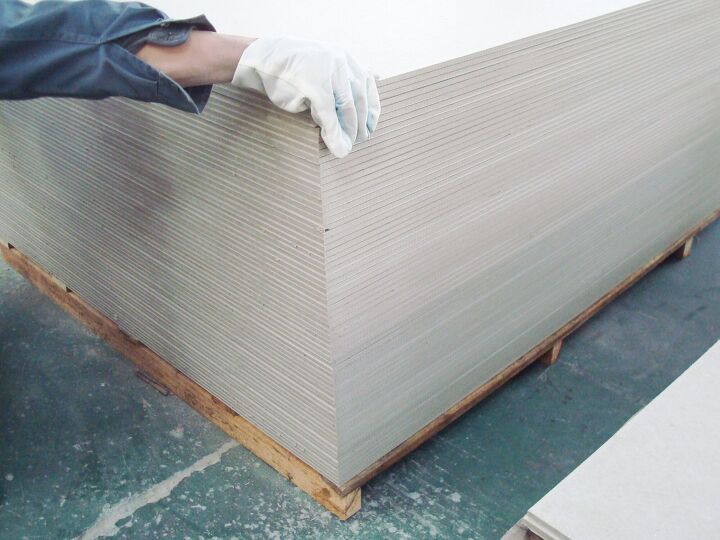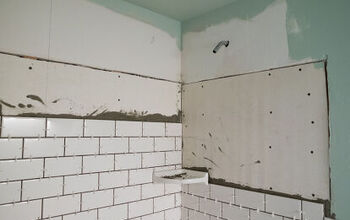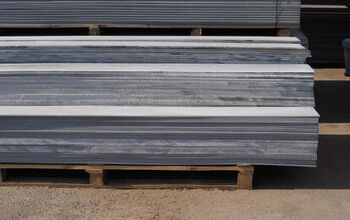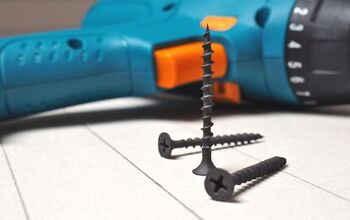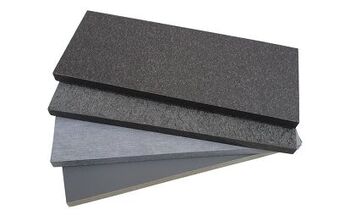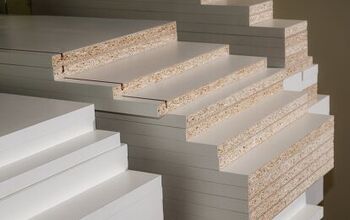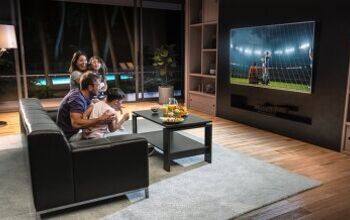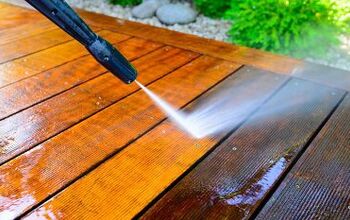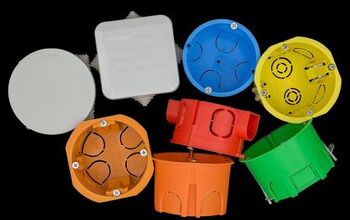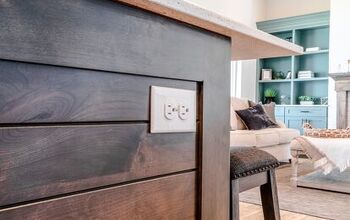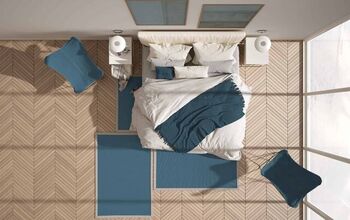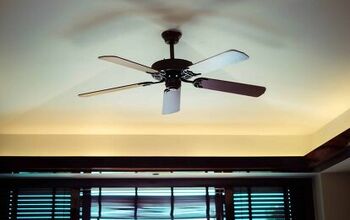PermaBASE Cement Board Vs. Durock: What's the Difference?

Mold and mildew growth are a consistent concern among homeowners, as over fifty percent of homes in the United States report some sort of issue with either. Although mold and mildew can grow anywhere in the home that is exposed to higher levels of moisture, bathrooms are plagued most often. For this reason, it becomes increasingly important to choose the right backer board for your tile installations.
There are many different brands of tile backer board available, which can make your decision that much more challenging. Oftentimes, the choice between PermaBASE cement board vs. Durock comes down to contractor preference. If a particular contractor likes one product over the other, they are more likely to use it more often, which results in product bias.
Although PermaBASE and Durock are distinct products, they have very similar constructions and are typically used for the same applications. However, each product comes with its own unique characteristics, and advantages and disadvantages. With that said, let’s take a look at what exactly a tile backer board is, why they’re so important, and which popular cement board product you should choose – PermaBASE or Durock?
Do You Need to Hire Shower Installers?
Get free, zero-commitment quotes from pro contractors near you.

What is a Backer Board?
Also commonly referred to as cement board, backer boards are constructed without any organic materials, like wood. As such, backer board doesn’t rot or decay over time from exposure to moisture. These boards are typically used in wet rooms, like bathrooms and kitchens, as well as entry points into a space where rain or wet shoes may allow moisture to enter.
Tile backer boards not only waterproof rooms, they also serve as insulation boards with electric underfloor heating, home insulation, dry lining, and create a flat surface for tiling. Although the core of cement boards is not waterproof, the board can withstand moisture without falling apart. An added bonus associated with cement board use is its resistance to mold growth.
There are many different types of cement boards out there, available from a range of manufacturers. Though, each are made of similar materials – cement and aggregate core with a fiberglass mesh outer “skin.”
The Importance of Backer Boards
Backer boards are ideal for waterproofing, as the non-organic materials used in their construction means they are resistant to water ingress, weakening, and deformation. When compared to plaster board, cement boards can hold a considerable amount of weight. This makes them an excellent choice for tiled surfaces – both walls and flooring.
Using some sort of cement board underneath tile makes it less likely that the tiles will fall off. They are specially designed for adhesion, creating a strong bond with both the grout and adhesive when compared to other types of tile backers. Cement boards create a smooth, flat surface that makes it easier to tile and plaster.
The smooth foundation that these boards create means that they are compatible with a wide variety of tiles, including granite, marble, limestone, and more. Their versatility makes them suitable for walls, floors, and even fitting into awkward corners in your home. Finally, tile backer boards are excellent for insulating wet spaces and enhancing the efficiency of underfloor heating.
What is PermaBASE Cement Board?
PermaBASE Brand Cement Board is one of many cement boards available for you to choose from. It is a rigid substrate constructed of Portland cement, aggregate, fiberglass mesh, which creates a durable surface that is designed to withstand prolonged exposure to moisture. As such, PermaBASE is ideal for use as an underlayment for showers, tub surrounds, flooring, countertops, and a wide array of other interior and exterior applications.
Advantages of PermBASE
Choosing PermaBASE as your tile underlayment comes with the following advantages:
- Remains intact when exposed to water.
- Resistant to rotting, swelling, and disintegrating.
- Helps prevent mold growth – with the highest possible score on mold tests.
- Withstands under the toughest conditions.
- Lightweight material and easy to cut – can be cut with a standard utility knife and straight edge
- With PermaBASE’s unique core, little to no extra labor is required to clean the edges after cutting.
- Achieves the lowest water-absorption rating in the industry.
- Resists impact, stays dimensionally stable, and is extremely durable.
- Approved by building code.
- Has a smoother finish than other boards, with no open edges.
- Meets UL classifications for one-and-two-hour fire-rated assemblies.
- Can be used for interior and exterior applications.
What is Durock Cement Board?
Manufactured by the United States Gypsum Company, Durock is another brand of cement backer board. It provides builders, architects, and tile installers with a strong, water-durable backer board for walls, floors, tub surrounds, showers, countertops, and a variety of exterior applications.
Made of comparable construction materials, Durock is slightly more lightweight than PermaBASE. The smooth side of this cement board is used for adhesive applications and the fiberglass mesh side is used for thinset mortar or mastic application.
Like PermaBASE, Durock can be scored using a utility knife. This makes it easy for DIYers to break the board as needed, without the use of a saw. It is mold resistant and is the perfect choice for tiling in kitchens, laundry rooms, bathrooms, and anywhere that experiences higher levels of moisture than the rest of the home.
Advantages of Durock
Choosing Durock Cement Board as your tile underlayment comes with the following advantages:
- Available in a variety of thicknesses and sizes, in addition to customized.
- A smooth side for mastic application and a texured surface for friction.
- Low thermal expansion.
- Noncombustible.
- Waterproof – will not disintegrate in water.
- Mold resistant
- Easy to cut and score with a utility knife.
- More adhesive coverage.
- Flexible and versatile.
PermaBASE vs. Durock
With so many types and brands of tile backer board out there, it can be difficult to determine which is the best for your project. PermaBASE and Durock are two commonly used cement board brands that both claim to be durable, waterproof boards that are easy to cut and install, and can be used for a variety of applications.
Though, upon doing extensive research on both, you’ll find that many professionals prefer PermaBASE Brand Cement Board over Durock since it is easier to cut and has better edge treatment that allows the installer to screw or nail closer to the edge.
With its patented EdgeTech technology, PermaBASE has a competitive advantage over similar cement board products. This tapered, reinforced edge allows for nails and screws to be fastened almost right up to the edge without crumbling. Not to mention, this feature reduces the risk of screw spin out. This additional advantage that PermaBASE has is important when you’re installing backer board to wall framing, as the edge of the board can only up about ¾” of the wall stud to allow space for another cement board.
Price Comparison
Although PermaBASE and Durock are relatively equal in terms of performance, they are not equal in terms of cost. Here’s what you can expect to spend, on average, for these two cement board products:
| Product | Size | Price |
| Durock | ½ inch x 3 feet x 5 feet | $9.79 per board |
| Durock | ½ inch x 4 feet x 8 feet | $22.97 per board |
| PermaBASE | ½ inch x 3 feet x 5 feet | $11.27 per board |
| PermaBASE | ½ inch x 4 feet x 8 feet | $24.99 per board |
In terms of cost, it’s clear that you can get a sheet of Durock for a much more affordable price than PermaBASE – which makes Durock the more affordable choice for those looking to save money on their cement board. Of course, prices will vary slightly based on where you live and which supplier you purchase the product from.
Do You Need to Hire Shower Installers?
Get free, zero-commitment quotes from pro contractors near you.

Final Thoughts
At the end of the day, the choice between PermaBASE and Durock is up to you. The brand that you prefer depends on your particular budget, preference, and whether or not you need a board with better edge treatment.
If you want to make a sound investment for your home, always opt for cement boards that provide a long-lasting warranty. Both Durock and PermaBASE offer 30 Year Limited Warranties, with different stipulations.
Related Guides

Jessica considers herself a home improvement and design enthusiast. She grew up surrounded by constant home improvement projects and owes most of what she knows to helping her dad renovate her childhood home. Being a Los Angeles resident, Jessica spends a lot of her time looking for her next DIY project and sharing her love for home design.
More by Jessica Stone



